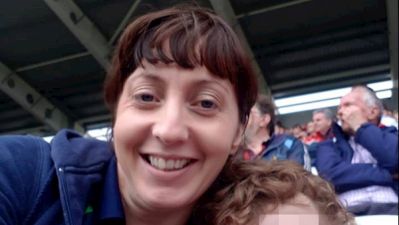A four-day-old baby boy sustained an irreversible brain injury after his mother had an epileptic seizure collapsing out of her bed and pinning the child underneath her, an inquest in Cork has heard.
Marie and Darragh Downey of Knockanevin, near Kildorrery, Co Cork died within 33 hours of each other in March 2019 at Cork University Maternity Hospital (CUMH).
Ms Downey, who had an uncomplicated pregnancy, suffered from epilepsy and had a seizure, possibly while breastfeeding her infant in her hospital bed in her private room. The 36-year-old was found dead on the floor of her hospital room shortly after 8am on March 25th, 2019.
Dr Keelin O’Donoghue, a consultant obstetrician/gynaecologist at CUMH, treated Ms Downey for all three of her pregnancies.
During her first pregnancy she suffered a seizure at 30 weeks and decided to go back on medication for her epilepsy prescribed for her by her neurologist, Dr Peter Kinirons. Ms Downey had gone off her medication for a period amid her concerns about taking it during pregnancy.
Dr O’Donoghue said they had discussed the risks of her not being on anti-convulsant medication. They were both happy with her returning to her medication and she was diligent about taking her tablets. She took the medication through her subsequent two pregnancies.
‘Shocking’
Dr O’Donoghue said that during Ms Downey’s third pregnancy in 2018, she told her at her 12-week appointment that she had an appointment with Dr Kinirons in January 2019. However, Ms Downey did not make the appointment due to important family events.
Dr O’Donoghue said she regretted not asking if Ms Downey had attended the appointment and conceded that it was an “oversight’ for her not to have written to the neurologist about the care of her patient.
She said she “made the assumption” that Ms Downey had attended the appointment. She was shocked when it subsequently emerged that the neurologist had not even been aware of the third pregnancy.
Dr O’Donoghue said she was conscious that fatigue and stress were “precipitators for seizures” in Ms Downey and that breastfeeding could also have been stressful for her.
She described what occurred to mother and baby as “shocking and unexpected” and again extended her condolences to Ms Downey’s husband Kieran Downey.
She told the Coroner’s Court that prior to her death, Ms Downey was breastfeeding, doing well and “keen to get back home.”
Out of the bed
Dr O’Donoghue recalled starting her rounds on the morning of March 25th, 2019. When she went in to Ms Downey’s room shortly after 8am, she was shocked to find that she was “half out of the bed”.
“Her legs remained on the bed, with her upper body on the floor. She was in an unnatural position, with her neck twisted up and to the left, facing the door, up against the corner of the bathroom door and wall. Her face was very suffused and purple in colour; her neck and body were pale; and her legs were pale and white.
“I quickly moved over to Ms Downey and felt her neck for a pulse. Her face was suffused and cold. Her eyes were staring and there was blood around her mouth. I immediately rang the emergency bell in the room and called out into the corridor. Both an SHO and midwife attended very quickly.
“The SHO rechecked for a pulse, touched Ms Downey, and confirmed there was no pulse. Others attended, including the ... ward manager and a staff midwife.
“As we started to move Ms Downey, the ward manager noted that baby Darragh was lying underneath Ms Downey, on her right side and thus concealed initially from our view. He was cold, mottled and with discoloured skin. The midwife brought him to the nursery and the neonatal emergency team was called.
“I asked the midwifery duty manager for the day to contact Mr Downey and tell him that Ms Downey was suddenly very unwell and to come in without delay.”

Dr Brendan Murphy, a consultant neonatologist at CUMH, said that Darragh suffered a hypoxic ischamemic encephalopathy after his mother collapsed on top of him. He told the inquest that when Darragh was found under his mother by paediatric staff, he received comprehensive medical intervention including intubation, adrenaline and fluid and chest compressions. When his oxygen saturation improved he was transferred to the neo-natal intensive care.
Doctors determined that Darragh was “clinically comatose” having sustained an “irreversible brain injury.”
“He never regained consciousness. He was unaware of [the medical intervention]. There was no suffering.”
The inquests continues.







